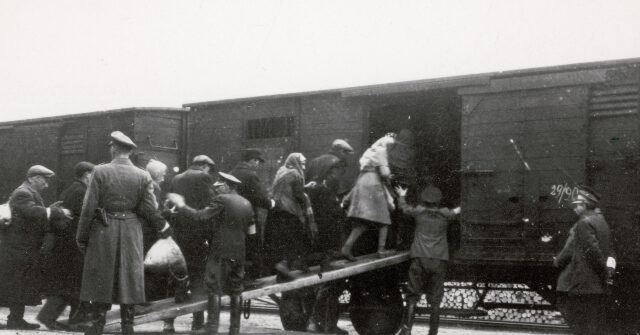The recent comments made by Pope Francis regarding the situation in Gaza have ignited a significant outcry, particularly from Edith Bruck, a prominent 93-year-old Holocaust survivor. In an interview with the Italian newspaper La Repubblica, Bruck vehemently criticized the Pope’s suggestion that Israel’s actions in Gaza might be characterized as genocide. She articulated her discontent, stating emphatically, “Genocide is something else. When a million children are burned to death, then you can talk about genocide.” This commentary emerges amidst ongoing violence and military confrontations in Gaza, where Pope Francis has previously referred to Israel’s military actions as a “massacre” of innocent civilians, including women and children.
In a recent book-length interview, Pope Francis expanded on his views by advocating for a careful investigation into whether Israel’s military operations could meet the technical criteria for genocide, as defined by legal scholars and international organizations. He expressed his concerns over the suffering and devastation in Gaza, suggesting that the situation displays characteristics that could align with genocide. This assertion, however, has met with resistance and condemnation from various quarters, including an official response from the Israeli Embassy to the Holy See, which rejected the Pope’s assertions. The embassy characterized the events of October 7, when Hamas conducted attacks, as a “genocidal massacre” against the Israeli people, defending Israel’s military response as a legitimate act of self-defense under international law.
Bruck, who has endured the horrors of Auschwitz, Dachau, and Bergen-Belsen, emphasized that the tragedy unfolding in Gaza is indeed concerning, but she firmly contended that Israel is not engaged in a campaign to annihilate the Palestinian population. She highlighted the contrasting intentions of Hamas, which has explicitly stated its desire to eliminate Jews globally, reinforcing her view that labeling Israel’s actions as genocide is not only inaccurate but dangerous. Bruck suggested that the Pope may not fully grasp the weight of the term “genocide,” indicating that it is too lightly applied in this context and undermines the historic significance of the term in relation to the Holocaust.
Moreover, Bruck criticized the Pope’s ease in using such potent language and attributed this to a lack of understanding regarding the implications of his statements. She argued that Pope Francis’s background, combined with his foreignness to the Italian context, may have led to a careless slip in his phrasing. Despite recognizing the Pope’s previous visits and gestures of reconciliation towards the Jewish community, Bruck expressed that these efforts are not enough. She called for a greater focus on combating anti-Semitism, stressing the importance of addressing historical grievances more meaningfully.
The Holocaust survivor’s remarks highlight a broader concern regarding the implications of misusing the term “genocide.” Bruck pointed out that using this term incorrectly can devalue the severity and horror of genuine genocides, such as the Armenian genocide and the atrocities committed against the Jews during World War II. She articulated a clear distinction between this historically recognized genocide and the situation in Gaza, conveying that the complexities of the current conflict should not dilute the weight of terms reserved for the gravest historical atrocities.
In closing, while Bruck’s views necessarily center on her profoundly personal experiences as a Holocaust survivor, they also resonate with a larger dialogue surrounding the notions of identity, suffering, and the political dynamics in the contemporary Israeli-Palestinian conflict. Her admonition towards Pope Francis underscores a critical need for sensitivity in language, particularly when discussing issues bound by such harrowing histories. The implications of mislabeling actions in modern conflicts as genocide can have far-reaching effects on international relations and societal perceptions, making Bruck’s perspective not just a personal critique, but part of an essential discussion on how we address and remember history.

